Hip-Hop Homos
The first-ever HomoRevolution Tour brings GLBT hip-hop performers—including Mz Fontaine, Deadlee, Johnny Dangerous, Bigg Nugg, FoxxJazell, and QBoy—to Houston April 6.
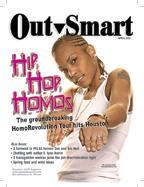 It’s no secret that for the past two decades, hip-hop has been at the forefront of modern-day culture. Turn on your TV and you’re bound to see or hear the music in some form or fashion. It’s a multi-billion dollar industry that, besides the music, has resulted in everything from designer clothing labels (Roc-A-Wear, Sean John) to artists acquiring ownership in pro-basketball teams (Jay-Z, Usher). In 2006, hip-hop gained more mainstream popularity when Three 6 Mafia took home the Academy Award for their song “It’s Hard Out Here for a Pimp” from the film Hustle & Flow. Hip-hop, which has its roots in the Bronx club culture in the ’70s, is now enshrined in the Rock and Roll Hall of Fame (with the induction of Grandmaster Flash last month). An art form that was once considered a passing fad has stood the test of time—but in a significant way has yet to really catch up with the times.
It’s no secret that for the past two decades, hip-hop has been at the forefront of modern-day culture. Turn on your TV and you’re bound to see or hear the music in some form or fashion. It’s a multi-billion dollar industry that, besides the music, has resulted in everything from designer clothing labels (Roc-A-Wear, Sean John) to artists acquiring ownership in pro-basketball teams (Jay-Z, Usher). In 2006, hip-hop gained more mainstream popularity when Three 6 Mafia took home the Academy Award for their song “It’s Hard Out Here for a Pimp” from the film Hustle & Flow. Hip-hop, which has its roots in the Bronx club culture in the ’70s, is now enshrined in the Rock and Roll Hall of Fame (with the induction of Grandmaster Flash last month). An art form that was once considered a passing fad has stood the test of time—but in a significant way has yet to really catch up with the times.
In the late ’90s, radio personality Wendy Williams caused a bit of controversy when she spoke of a “gay rapper” within the confines of the hip-hop community. The $64,000 question was “Who is it?” and emcees from LL Cool J to Queen Latifah became suspect. Needless to say, the “gay rapper” was never revealed, but over the years, hip-hop has never been kind to anyone with a life that centers on anything apart from what is considered the norm. Buju Banton, the successful dancehall musician from Jamaica, created a considerable amount of international controversy with his 1992 song “Boom Bye Bye” that called for violence against homosexuals. Popular rapper Eminem has earned his fair share of press for his antigay lyrics as well. His sophomore release, The Marshall Mathers LP, received praise from critics but provoked a backlash from gay-rights activists and feminist groups who asserted that the album was misogynistic and homophobic. In what was considered a publicity stunt, Eminem performed his song “Stan” at the 2001 Grammy Awards with gay icon Elton John. In a post-ceremony interview with MTV newsman Kurt Loder, Eminem said that he wasn’t aware John was gay and that he respected him. Neither the gesture nor his comments appeased critics.
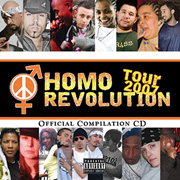 Portrayals of masculinity in hip-hop and rap often mimic stereotypes of aggressiveness, violence, sexism, and homophobia. To make mockery of someone’s sexuality by regulating them to “bitch-made” status or to make lyrics that degrades a man by “making a n–ga suck my dick” is one of the driving forces that causes many people take a look at rap music today and ask, Just how did it get to be so homophobic? Why is the music so violent? What’s really going on with a cat who is supposed to be so “thugged out” and “hardcore,” yet is depicted bare-chested in a video dissing women while cavorting with a bunch of dudes? Is it homoeroticism or homo-thuggery? In his new documentary Hip-Hop: Beyond Beats and Rhymes, filmmaker Byron Hunt calls attention to question when he asks Busta Rhymes—who made news a year ago when he lashed out at a gay fan in Miami—to describe his feelings about homophobia in hip-hop culture. Rhymes refuses to answer the question and instead walks away from the camera.
Portrayals of masculinity in hip-hop and rap often mimic stereotypes of aggressiveness, violence, sexism, and homophobia. To make mockery of someone’s sexuality by regulating them to “bitch-made” status or to make lyrics that degrades a man by “making a n–ga suck my dick” is one of the driving forces that causes many people take a look at rap music today and ask, Just how did it get to be so homophobic? Why is the music so violent? What’s really going on with a cat who is supposed to be so “thugged out” and “hardcore,” yet is depicted bare-chested in a video dissing women while cavorting with a bunch of dudes? Is it homoeroticism or homo-thuggery? In his new documentary Hip-Hop: Beyond Beats and Rhymes, filmmaker Byron Hunt calls attention to question when he asks Busta Rhymes—who made news a year ago when he lashed out at a gay fan in Miami—to describe his feelings about homophobia in hip-hop culture. Rhymes refuses to answer the question and instead walks away from the camera.
“I’m becoming numb, so to speak. I believe most people who are homophobic have deeper issues they’re not willing to deal with,” says Ernie Ball, when asked about his feelings about homophobia in hip-hop culture. “Society has made it easy to disrespect people of a different sexual orientation. Even though the GLBT community has come a long way, it’s still a fight for respect. There will always be people who don’t agree with the lifestyle and will always have negative things to say about it.”
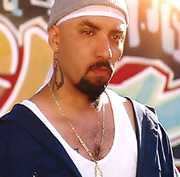 There are many who share Ball’s sentiments, but from the depths of the urban underground, a new breed of emcee has stepped to the mic and now rocking new rhymes about their own experiences. They are standing up for themselves and in all honesty don’t care whether you—or the rest of the hip-hop community—like what they have to say or not.
There are many who share Ball’s sentiments, but from the depths of the urban underground, a new breed of emcee has stepped to the mic and now rocking new rhymes about their own experiences. They are standing up for themselves and in all honesty don’t care whether you—or the rest of the hip-hop community—like what they have to say or not.
Several of these performers, including Deadlee, Mz Fontaine, Johnny Dangerous, Bigg Nugg, FoxxJazell, and QBoy, roll through Houston this month as part of Homo Revolution Tour 2007, the first-ever music tour featuring gay, lesbian, bisexual, and transgender hip-hop artists. Homo Revolution, which lands here on Friday, April 6 at Club Dignity, located at 1927 Scott (just off I-45 near the Texas Southern University campus), offers a chance to experience another aspect of the hip-hop genre. Through their words and beats, the Homo Revolution artists—who perform in El Paso ( April 3 ), San Antonio ( April 5 ), Austin ( April 7 ), and Dallas ( April 8 ) on their Texas leg of the tour—also shed light on changes that are necessary for hip-hop to come to grips with the negativity it has accumulated over the years. At the same time, the Homo Revolution hip-hoppers offer new role models for people who feel they are not represented in mainstream hip-hop.
Gay hip-hop, or “homohop,” as it has been called, has been around for a while in the underground, but it was first brought to the attention of the larger GLBT community in Alex Hinton’s 2005 documentary about the genre, Pick up the Mic. That 90-minute film profiled 18 GLBT hip-hop artists, who included Houstonian Miss Money, interviewed last fall by OutSmart (“She’s So Money,” September 2006).
Before the launch of the Homo Revolution Tour on March 29 in San Diego, I spoke with several of the performers who will appear in Houston (the stop here is sponsored by the local Gay and Lesbian Latino Organization as well as Unity in the Community, a new group established by club promoters Barbara and Zip Short-Morgan, among others).
Deadlee, who refers to himself as “the queer bastard child of Lil’ Kim and DMX,” is a roughneck and grimy vigilante whose lyrics have tackled race, class, police brutality, and, of course, sex. “I think we need to directly challenge the homophobes and let them know that gays are not to be f**ked with. Gay peeps can also be masculine, and it just hasn’t been shown in the media,” Deadlee said in a phone conversation with OutSmart. “I remember when Queen Latifah had a song saying she wasn’t a bitch, and gays need to say the same: We ain’t your fag. I grew up with hip-hop, and it’s my music, too. I don’t understand how anyone can tell me that I can or can’t do this. It is more upsetting that the black community knows struggle and bigotry, yet they can be the worst homophobes.”
“Hip-hop is not homophobic. There are plenty of positive, conscious artists out there who are not getting any light on them, because the big corporate sponsors have decided that negative rap not only makes them money but also continues to propel negative connotations of black society.”
_________________________________
Call It Homohop
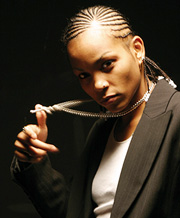
Originally from South America, Mz Fontaine cooks up a musical fusion of Caribbean bass lines, American hip-hop soul, and British neo-soul, which is influenced by her background. “Growing up, my mother would listen to singers such as Tina Turner and Jim Reeves. I remember playing with my father’s record player after he departed from the physical, and I would sing [along] to Whitney Houston and Michael Jackson. Music in South America was much narrower, and the highlighted influences came from the reggae culture, which was a great influence in my early life. Hip-hop music filtered through to Guyana, and you had the MC Hammer and Bobby Brown era. This was the type of music my friends introduced to me, as I was never allowed to listen to the genre of hip-hop. My mother would not allow it under her roof, so after moving to the liberated UK, I was able to broaden my horizon fairly quickly.”
Representing the “T” in GLBT, FoxxJazell, a striking mocha beauty who stands five-foot-ten, is a hip-hop connoisseur at heart. “I love T.I. [the popular Atlanta-born hip-hop artist and self-proclaimed “King of the South”], and I would love to work with him,” she said. “I think he is one of the best in the game right now.” FoxxJazell has already shared the stage with divas Ce Ce Peniston, RuPaul, and Robin S. She has high hopes of making an impact on the hip-hop community with her passion for the game. “I don’t aim to be the best or greatest rapper,” FoxxJazell said. “I aim to be the voice for my people because our voice is non-existent in the hip-hop community. It’s time for change, and I want to be that change.”
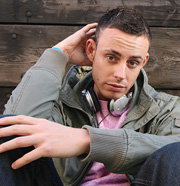
Chuck D, the fiery orator of the legendary rap group Public Enemy, once said, “If I can’t change the people around me, I change the people around me.” A perfect embodiment of this tenet is QBoy, a take-no-shit emcee hailing from the UK. “I’ve just presented a documentary for Channel 4 called Coming Out to Class which looks at gay teenagers and their experiences at school, highlighting the homophobia they face and the lack of support they currently have, and it’s been getting a great response,” QBoy said in an interview from London. “I was bullied at school myself and wrote the track ‘A Deal With God’ about my experience, which led me to working with charities like Schools Out, who specialize in helping young gay teens. It’s an issue I feel strongly about and am pushing it further beyond just a TV program. I want to see policy change and gay teens protected and supported like the rest of their classmates.”
QBoy added, “Hip-hop is not homophobic. Certain artists are homophobic. Unfortunately, these artists are the mainstream ones who get played and featured everywhere. However, we can’t tar everyone in hip-hop with one brush, as there are plenty of positive, conscious artists out there who are not getting any light on them, because the big corporate sponsors have decided that negative rap not only makes them money but also continues to propel negative connotations of black society. I think we need to educate. We need women to see that the root of most homophobia is sexism. People also like to use their religion as an excuse to spread their hatred and become what is very much the opposite of what it means to be a Christian. Therefore, religions need to step up and say quite clearly that they do not support bigotry and hate of any kind, including homophobia. The church is the last place where it’s okay to be hateful, it seems, which is quite ironic.”
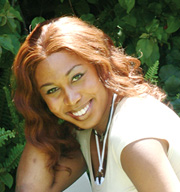
The Homo Revolution Tour is more than a posse of GLBT rappers who got together to make money and rock the finer things that have become associated with hip-hop. It’s about change. It’s about being who you are and being comfortable in your own skin. To do so takes a lot of courage. Bigg Nugg, holding it down for the bear community, is an organic emcee with thumping beats and spitfire lyrics reminiscent of Tupac Shakur. When former NBA star Tim Hardaway recently made derogatory comments about gays after John Amaechi, another ex-pro basketball pro, came out, it was Bigg Nugg who took a shot at the baller with his track “Bullshit.” Big Nugg told OutSmart, “I think someone of his status needs to be more conscious about what it is that they say. I’m not one for making diss tracks, but on the cool, I had to say something. I couldn’t just let that go. Tim Hardaway was probably unaware that there are gay rappers out here who will respond, and we’re not taking people’s shit anymore. People like myself and Deadlee are gonna respond to things you say. And I used to be a Tim Hardaway fan when I was younger, but not anymore.”
Mz Fontaine has high hopes about what the tour will do for the GLBT community. She is certain that she and her fellow rappers, who have come together for a common cause, will have a major impact. “In a few years when homohop is better known and widely accepted, I’m hoping we will all be listed in the history books of gay hip-hop legends for what we have achieved. On many occasions I have been labeled a role model for many young people and more so for lesbians interested in music or the hip-hop industry altogether. I would feel honored and satisfied that after all the fighting, the pain, and struggle, it’ll easier for the young generation, and they will be strong and look up to us for what we have done. With tears in my eyes it will be a memorable moment, and I hope it’s not too far in the future.”
Christopher Whaley is a poet and spoken-word artist and editor-in-chief of the Houston music magazine SOBO/ Soulful Bohemian. He also interviews author E. Lynn Harris in this issue (“Out and Off the Shelf”). These are his first contributions to OutSmart.
____________________________
LISTEN UP
Get updates on the HomoRevolution Tour at www.homorevolution.com.
Prep for the HomoRevolution Tour 2007 by getting more information, including music clips, on some of the artists scheduled to perform in Houston.
Bigg Nugg
www.biggnugg.com
www.myspace.com/biggnugg
Deadlee
www.deadlee.com
www.myspace.com/deadleeofficial
Feloni
www.myspace.com/feloni
FoxxJazell
www.foxxjazellmusic.com
JFP
www.myspace.com/juliefuckinpotter
Johnny Dangerous
www.myspace.com/johnnydangerous
Mz Fontaine
www.mzfontaine.com
www.myspace.com/mzfontz
Tori Fixx
www.myspace.com/torifixx











FB Comments